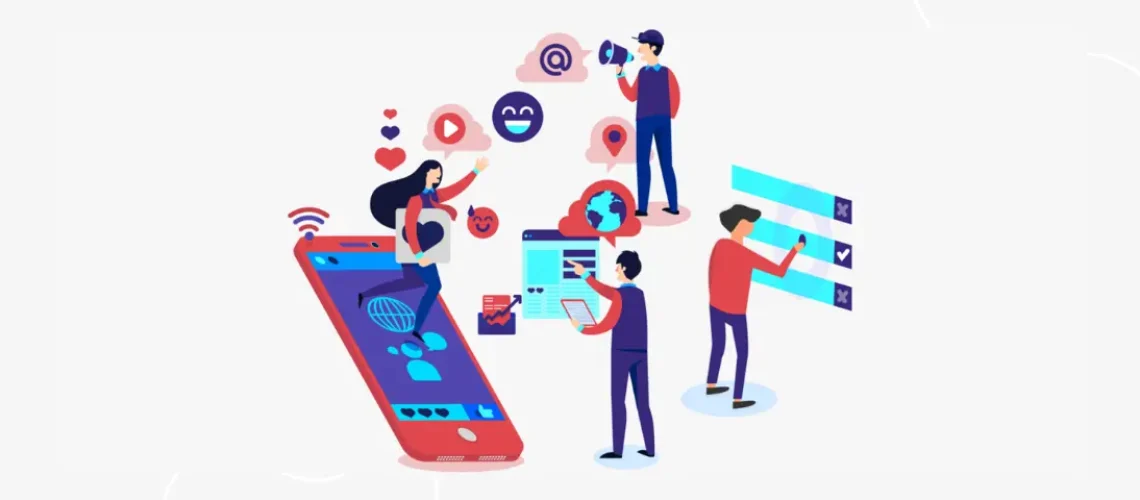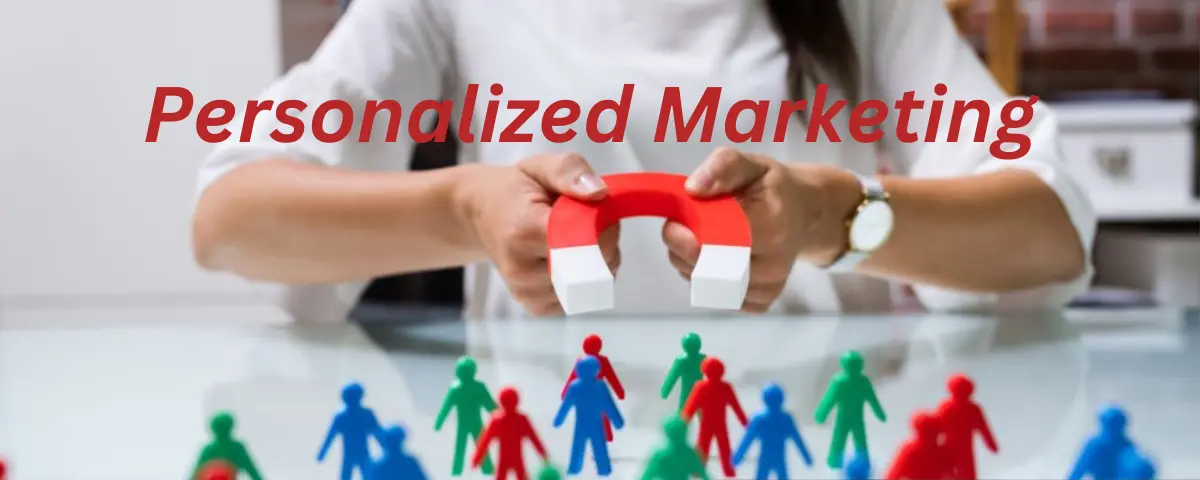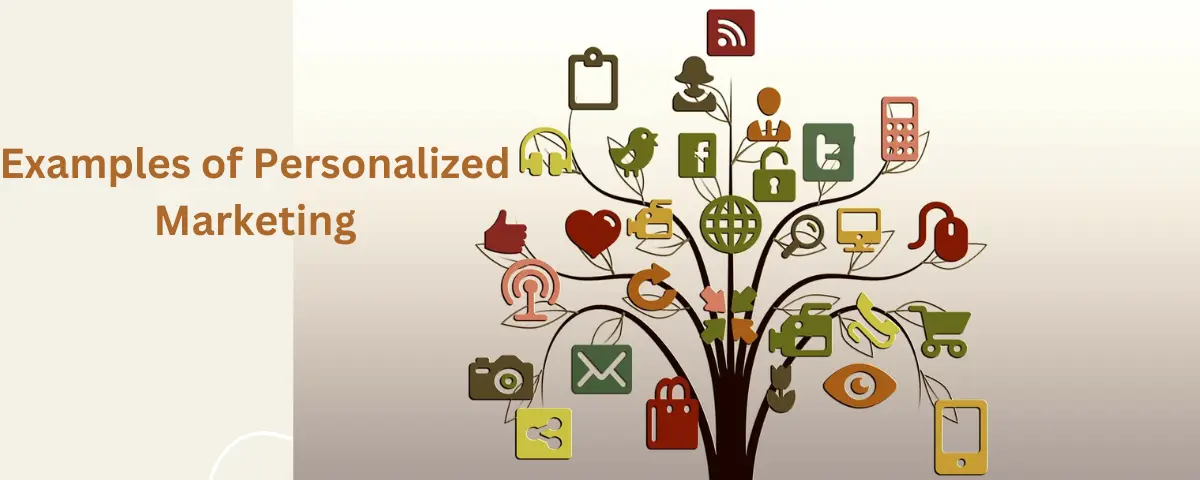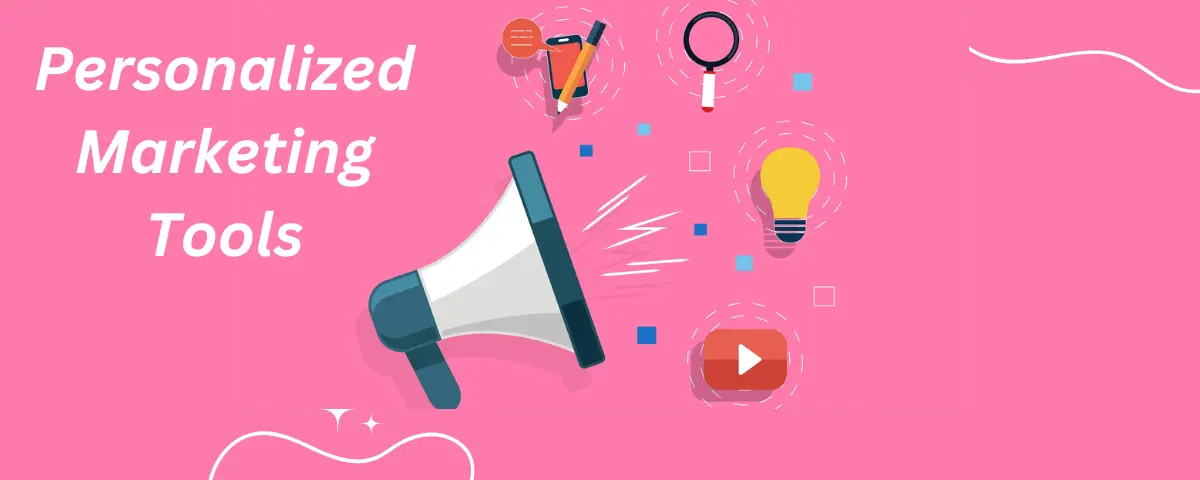Personalized marketing is a game-changer for businesses looking to build meaningful connections with their customers. It is a powerful approach that tailors marketing messages, offers, and experiences to individual customers based on their unique preferences, behaviors, and needs.
Gone are the days of generic, one-size-fits-all marketing campaigns. Personalized marketing recognizes that each customer is unique, with distinct interests, pain points, and buying journeys. By leveraging data and customer insights, businesses can deliver highly relevant and contextual marketing that resonates with their target audience, building stronger relationships and driving better results.
But what does it take to make personalized marketing a success? You can start by enrolling in some or all of the courses listed to learn how to use a data-driven approach to connect with target audiences.
In this article, we’ll explore the benefits, strategy, and challenges of personalized marketing, helping you understand how to harness its power to grow your business and stand out in a crowded market.
What is Personalized Marketing?
Personalized marketing is a data-driven approach that connects with target audiences and existing customers to provide a more tailored marketing experience. By analyzing data, businesses can identify trends and effectively target potential customers. This helps marketing strategists understand their target demographic and nurture leads throughout the buying process.
Get 50% Discount to Master ALL Aspects of Digital Marketing That Can Earn You $2,500 - $5,000 a month (Even if you are a complete beginner!)
Our students that intentionally implement what they learn from our digital marketing course make back the entire course fee within a single month or more after completing our course because our course gives them many income generating options with unlimited earning potential with no age or location barrier. The best part is no technical skills are required.
An opportunity to change your lifestyle and make money working from anywhere in the world. The results our students get from our digital marketing course prove this could be applied to any market or country and that it is designed for any skill level and work background.
*By signing up, you agree to our privacy policy and terms of service.
Personalized marketing also involves using data to tailor the information your contacts see through various channels, such as email and advertisements. This includes using information like interests, shopping preferences, and past purchases to create a more personalized experience. When done correctly, personalized marketing sends the right message to the right people at the right time, giving the content a touch of humanity and driving revenue.
Benefits of Personalized Marketing
There are multiple advantages of personalized marketing for both businesses and consumers. The following benefits occur when tactics are successfully implemented:
1. Improved communication with customers
When your content is relevant to your potential customer, they are more inclined to submit and communicate their information to you. You can use that information to produce even more meaningful content.
2. Improved Customer Experience
Customers are more likely to share personal information with their favorite businesses if they receive something in return. They may fill out forms, download whitepapers, or take surveys to earn discounts or identify their favorite products. So, what do customers expect in return? With all of this customer data available, consumers expect brands to protect sensitive information and provide more tailored experiences when they return.
3. Increase High return on investment
Businesses can improve return on investment by figuring out which channel every customer prefers and responding to them accordingly. Marketers may create a high-value omnichannel marketing strategy by identifying the channels that customers interact with and then following up with them using automation technology.
4. Create Consistency Across Channels
Sometimes all of the channels—email, social media, mobile, etc. that consumers use to communicate with companies are used in a single day. Because of this, brands need to be consistent across all platforms now more than ever. For instance, the email message experience should be consistent with the in-store experience through the app.
5. Increased reputation for the brand.
When customers provide information and data, they anticipate being regarded as distinct persons with particular tastes. Companies that invest time and money into putting effective customized marketing tactics into practice will get a competitive edge in terms of customer satisfaction and brand loyalty.
6. Decrease marketing spend
Personalized marketing helps businesses reduce marketing spend by targeting the right audience with the right message. This helps them to focus on high-value customers, optimize their budget, and achieve better ROI.
How to Create a Successful Personalized Marketing Strategy
1. Form a group to lead the initiative
To succeed in personalized marketing, assemble a team of creative individuals to collaborate on crafting customized messages. Ensure these team members work together full-time to achieve business goals. Empower them to think and act quickly to adapt to changes and measure success and provide opportunities for them to collaborate with higher-ups to ensure their efforts align with overall company objectives.
2. Collect and Analyze Audience Data
While many consumers desire tailored experiences, many are also reluctant to share their personal information with third parties. It is important to consider which data is most useful to monitor and concentrate on the information that will enable you to provide your customers with the greatest experience possible.
3. Develop personalized content and messaging
Creating personalized content and messaging starts by segmenting your audience based on their demographics, interests, and behaviors. Use this information to tailor your content to each segment’s specific needs and preferences. Personalize your messaging by using the customer’s name, referencing their past interactions with your brand, and offering recommendations based on their interests.
Also, ensure your content is relevant, valuable, and engaging to build trust and loyalty with your audience. Finally, test different approaches and optimize your content based on customer engagement and feedback.
4. Leverage personalization tools and technologies
To leverage personalization tools and technologies, start by identifying the right platforms and software for your business. Consider using customer relationship management (CRM) systems, marketing automation tools, and data analytics platforms to collect and analyze customer data. Use this data to create targeted campaigns and personalize customer interactions.
Additionally, consider using AI-powered chatbots and virtual assistants to provide personalized support and recommendations to your customers. By leveraging these tools and technologies, you can create a seamless and personalized customer experience that drives engagement and loyalty.
5. Test and improve continuously
Now that you’ve completed a significant amount of the preparatory work, it’s time to review and implement the details of your personalization campaigns. As soon as your customized marketing strategy goes live, it’s time to test and make adjustments to keep getting better.
A/B testing is a useful technique for testing tailored marketing since it allows you to compare the responses of different audiences to different messages. Also, analyze the results and make data-driven decisions to refine your strategy.
6. Respect privacy and data ethics
Respecting privacy and data ethics is crucial when creating a personalized marketing strategy. You have to be transparent about how you collect and use customer data and obtain explicit consent before using it for marketing purposes.
Ensure compliance with data protection regulations like GDPR and CCPA. Respect customer preferences and allow them to opt out of personalized marketing if they choose. When you prioritize privacy and data ethics, you build trust with customers and maintain a positive brand reputation.
If you want more innovative ways to create a successful personalized marketing strategy for your brand, do check out our digital marketing course page, to know how you can acquire the right marketing strategies to grow your business.
Examples of Personalized Marketing
The term “personalization” is frequently used in reports and blog postings, possibly to the point of overuse. It’s become somewhat of a cliché and lost its meaning. For some, it just involves adding their name to the email subject line. Others associate it with complex algorithms that use buying habits to forecast life events like childbirth.
However, the average consumer is fully expecting personalization in every campaign your brand runs in this new technology world. Here’s a look at some examples of personalized marketing campaigns that can bring about success in your deal making.
1. Social Media Marketing
Engaging in social media interactions with current and prospective clients can boost customer satisfaction and brand loyalty. Unsurprisingly, social media has grown to be the mainstay of multichannel marketing campaigns and has contributed to the online dialogues that keep brands in the thoughts of prospective customers.
Through marketing automation, brands may deliver highly customized and pertinent social media messages and gather customer information from social media platforms, thereby enhancing communication and increasing conversions.
click on social media marketing training courses to learn more about social media marketing.
2. Customized Emails
Personalization is a tool used by marketers to kickstart email marketing. Marketers can design and distribute customized emails to a particular group with specific demands by using personalized marketing. Improving your comprehension of your recipient base is essential to making email content more relevant.
Sign-up forms are a good place to start gathering customer information. A form containing personal information, such as one’s birthdate and hobbies, is completed by new members upon enrollment. You may then use this essential first-party data to support personalization and audience segmentation.
3. Digital Marketing
Creating relevant and value-focused digital advertisements requires personalization. Tailor the ad content, visuals, and messaging to the target audience’s interests, demographics, and behaviors. Use data-driven insights to create ads that resonate with individual users and compel them to engage with your brand.
Ensure consistency across all campaign elements, including headlines, images, logos, and brand colors, to reinforce your brand’s identity and reassure visitors they’ve reached the right place. The ad should seamlessly transition to the related landing page, fulfilling the original promise and providing a cohesive user experience.
Additionally, test and optimize your digital ads regularly. Monitor performance metrics like click-through rates, conversion rates, and cost-per-acquisition to identify what works best for your target audience. Continuously refine your ad content, targeting, and placement to improve results and maximize the return on your advertising investment.
Challenges of Personalized Marketing
Here are some common struggles in personalized marketing and how you can overcome them.
1. Limitations of technology
While technology enables personalization, it also has limitations. Outdated systems, data silos, and lack of integration can hinder effective personalization. Businesses must invest in the right tools and ensure seamless data flow to overcome these challenges.
2. Maintaining the privacy of customers
The acquisition and application of customer data may provide challenges. It also raises questions about data security and privacy, even if it might offer insightful information about customer habits and preferences. Companies need to exercise caution when gathering and utilizing data about customers in an acceptable and accountable way.
3. Acquiring data without bothering your customers
Companies need to exercise caution when using consumer data ethically and responsibly. Customers’ consent must be obtained before using personal data for marketing purposes, and they must be open and honest about their rules regarding the collection and use of data.
4. Aiming for just the right amount of subtlety
Personalized marketing requires a delicate balance between being relevant and being intrusive. Aim for subtle yet effective messaging that resonates with your audience without being too pushy or overwhelming.
Tools for Personalized Marketing
Below are tools for personalizing your marketing strategy.
1. Customer Relationship Management (CRM) system
The center for customer information is the CRM software. This implies that you can store anything you’ve learned about potential customers, including their names, email addresses, as well as previous orders. Also, you can examine who interacts with your business and how they do that for your promotional efforts with the CRM software.
In addition, it helps with maintaining data organization of your customers on a single platform, and is essential for monitoring consumer interactions with your business, which can improve the targeting of marketing campaigns.
2. Marketing Automation Platforms
Using software and tools to expedite and automate labor-intensive marketing processes, including lead generation, nurturing, social media marketing, email marketing, and other activities, is known as marketing automation.
You can provide your customers with consistent and pertinent experiences across many channels and touchpoints by streamlining your personalization efforts using marketing automation. In addition, you may increase productivity and efficiency, measure ROI and performance, and save time and money. Examples of these tools are HubSpot, Mailchimp, and Marketo.
3. Personalized Email Marketing Tools
Delivering personalized messages to each recipient over email can be facilitated by personalization. The following methods of email marketing tools for personalization are possible for a marketing team that can keep their database of contacts clean:
- Introducing yourself to customers by using their first names
- Addressing their occupations or locations in the email body
- Providing relevant content and advice.
Proper implementation of email personalization can result in higher open and click-through rates as well as higher sales. But marketing teams need to make sure they can keep their contact database up to date with correct information.
Trends in personalized marketing
Businesses should always be aware of current marketing trends, and in the world of digital marketing, personalization is a big topic right now.
To bring you up to date, consider the following trends in marketing personalization:
1. AI-Powered Personalization
AI is transforming personalized marketing by enabling businesses to create highly targeted and relevant experiences for customers. AI algorithms can analyze vast amounts of customer data to identify patterns and preferences, allowing for personalized product recommendations, targeted advertising, and even customized customer support.
2. Omnichannel Personalization
Customers expect a consistent, personalized experience across all touchpoints with a brand. Omnichannel personalization involves delivering customized content and messaging through various channels, including websites, emails, social media, and in-store interactions. The goal is to create a seamless and personalized customer journey.
3. Personalized Mobile Experiences
With the increasing use of mobile devices for shopping and browsing, there is a growing trend towards personalizing mobile customer experiences. This includes personalized mobile notifications, SMS messages, and in-app experiences that are tailored to each user’s preferences and behavior.
4. Image Recognition
Image recognition technology allows customers to use their smartphones to identify products in the real world, such as by scanning a barcode or taking a picture. This enables businesses to provide personalized product recommendations and information based on the customer’s interests and search history
Conclusion
Using personalized marketing techniques, your company can establish meaningful, and personal ties with its customers. Customers anticipate that businesses will tailor their purchasing experiences to their hobbies. Profits are increased, brand loyalty is raised, and customers are happy when there is effective targeted marketing.
The customer will form a bond through this one-on-one interaction that will keep them coming back. You can provide the customer with all they require for them to feel confident doing business with you. Although it can be difficult, the rewards are amazing!
The growth of the business may have come with some complications and difficulties, especially if you don’t know how to use personalization in your marketing strategy or from data collected to reach your target audience and grow the brand. But don’t worry that’s why we teach it in depth in our digital marketing training course.
FAQs
Why is personalized marketing important?
Personalized marketing is crucial because it makes it possible to establish a stronger relationship with your customers and more efficiently contact your intended market. Additionally, it gives your company a more personal touch by introducing yourself to your clients.
Moreover, waste is reduced by personalized marketing. You might focus your efforts on a more specific group rather than using your marketing resources to reach a wider population. You may target the people you want to reach in a way that they will find valuable by using a marketing plan that is unique to your company and your target market.
How effective is personalized marketing?
Using personalized marketing to build enduring relationships with customers is a great way to see its effectiveness. Consumers who connect with a firm are more inclined to make repeat purchases. Establishing that connection will be made easier with the support of a strong tailored marketing approach; the remaining pieces are what will keep them coming back time and time again.
Personalized email marketing can help you establish a strong relationship with your consumers, who will then help you grow your audience by spreading the word about you.
How do I measure personalized marketing efforts?
In measuring personalized marketing efforts, you need to effectively and consistently interact with your customers across channels, thereby combining your personalization efforts with marketing automation.
More Resources
20 Best Marketing Automation Tools for Small Business in Nigeria
16 Top Digital Marketing Trends That You Should Know In 2024
CRM in Digital Marketing: How to Maximize Customer Relationships







